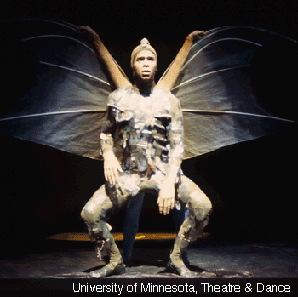What was I thinking?
Like many scholars employed in theater departments, I also direct plays and teach “studio courses.” When Henry and Scott invited me to propose an essay for Theater Historiography, I thought first to address the historical underpinnings of the theory/practice split in theater studies. Their email hinted that among the reasons they solicited my contribution was my ongoing practice as a theater maker. And I have a lot to say about the deleterious effects of the institutional and discursive arrangements that sift people who make theater from people who make scholarship about it. But my historical research has addressed the theater of Restoration and early eighteenth-century England. Could these concerns meet in the context of an anthology about historiography?
Part of my yearly teaching load is Major Directors: Theory and Practice. In this class, I ask students to study, appropriate, and re-purpose the work of canonical theater directors. The students read and write (quite a lot, actually), but their primary task is to create theater pieces – to craft bodies, objects, speech, and sound through space and time. The one director I always teach and the one who looms largest in my own training is Brecht. He’s the theater maker whose concepts and techniques best help me think and feel my way into the look, sound, and rhythm of a moment; he’s the anxious influence I’ve spent the most time mimicking and getting over.
My essay then developed as a challenge to myself. I often hear myself enjoining directing students to thread historical and critical thinking into their artistic practice. Steeped as they are in Romantic myths of creativity, they sometimes find this hard to do. For this essay, I thought to flip the dynamic. How might it look to adapt epistemologies developed in the context of the rehearsal hall to the tasks of historical research and writing? Might I, working as a theatre historian, draw explicitly upon analytic moves assimilated from my years of making plays? Could a re-purposed Brecht yield new historical insights into the life and work of the Augustan actress Anne Oldfield? Might this be another way to disrupt the theory/practice rift? And might such an essay exemplify a method that other people would find useful? My chapter is a foray into these questions.

